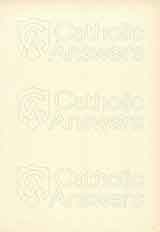

Girard, JEAN-BAPTISTE, known as Père Girard, a Swiss pedagogue, b. at Fribourg, December 17, 1765; d. there, March 6, 1850. At sixteen he entered the novitiate of the Franciscans at Lucerne; after spending some time teaching in the colleges of the order, he went to Wurzburg for his philosophical and theological studies, and was there ordained to the priesthood. Returning to Fribourg in 1789, he spent ten years in missionary work and in teaching philosophy to the young men of his order. His admiration for Kantian ideas, although restricted, was the occasion of suspicion of his orthodoxy. Upon the invitation of Stapler, minister of arts and sciences, Girard wrote a plan for education in Switzerland and was called to Berne where he remained four years. In 1804 he was recalled to Fribourg, and took up work in the primary schools.
As director of the schools in Fribourg (1807-1823), Girard made education compulsory, organized the school administration, insisted on the adoption of good textbooks and methods, and introduced the monitorial system, avoiding the abuse of mere memory exercise and making every study converge to the child’s complete education. These reforms, though crowned with success, were the occasion for bitter opposition from those who did not realize the importance of education, or adhered to the old routine methods. In 1809 Girard was sent to Yverdun to make a report to the Government on Pestalozzi’s institution. He had met the latter in Berne and professed the greatest admiration for his ability as an educator, while differing from him on several important points, especially on the value of the monitorial system. This method, in fact, which Girard applied, was opposed by the bishop and the civil authorities of Fribourg, in 1823. Girard abandoned his school and went to Lucerne as professor of philosophy in the gymnasium. In 1834 he returned to Fribourg, where he remained till his death, engaged in educational pursuits and in the publication of some of his works. He had a great reputation in France, being a Knight of the Legion of Honor, and a corresponding member of the Academie des Sciences morales et politiques.
Besides many reports and memoirs, his principal writings are: “Cours de philosophie fait au Lycee de Lucerne” (1829-31); “Des moyens de stimuler l’activite clans les ecoles” (1835); “Parallele entre la philosophie et la physique” (1840); and “Cours educatif de langue maternelle” (Paris, 1840-48). These works banish abstractions that are above the child’s intelligence, principles and rules being taught chiefly by means of concrete examples, and difficulties being introduced gradually. They contain the foundation of modern educational textbooks, and are still well worth studying. Père Girard ranks next to Pestalozzi among Swiss pedagogues.
C. A. DUBRAY

